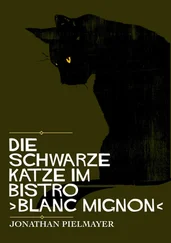“At the same time, in my role as a partner and creative director at a major, quote-unquote cutting-edge advertising agency, I saw a number of highly gifted, ambitious, intelligent artists, artists with, in some cases at least, all the good intentions in the world and a lot to offer the world, I saw them doing work that was just awful, mind-numbing, destructive, reactionary. And they were doing it for a staggering, massive, global audience — an audience so starved for a great popular art that these hacks were hailed as geniuses. Okay, not hacks, they weren’t hacks at all, but their work was hackwork, that’s the point. They were locked into a certain intellectual framework. Nothing they did was at all innovative, everything they fobbed off as new was in fact borrowed, tested, safe. And safety is the death knell for art. And these guys thought they were rebels. So I got to thinking if there wasn’t some way this seeming cultural wall, separating art and its audience, couldn’t be breached somehow. I went looking for artists who I thought would be open to this radical idea as a kind of unconventional avenue to fulfilling their own vision.
“We live in a period when the avant-garde has ceased to exist, where nothing shocks any longer because we’ve seen, done, violated, overthrown it all. What I discovered is that in order to find that avant-garde power again, you have to move into, paradoxically, the most banal of all media. The one place left, it seems, where certain kinds of ideas are forbidden to be expressed. Where the two partners in communication, called editorial and advertising, cling to the Enlightenment-age fiction of their irreconcilability with one another. It’s pretty late in the game, right now, if you’re an artist; if you want to do something interesting, something new, you have to forget books, forget painting, sculpture, theater, journalism, movies. You have to take on advertising. You have to enclose its incredible powers of destruction.
“In the year and a half that Palladio has been in operation, that is what we have tried to do. We have launched a revolution. We have blown up advertising. We have broken open the frame — aesthetically, and, to a lesser degree, politically. Still, this revolution is a modest one. I feel we are just starting to do what Modernism did, in its revolution — that is, launch the debate.
“Every client of ours — every client — has seen an upsurge in sales as a result of our work. I don’t care. Our work will continue even if that circumstance should change. Our whole aim in starting Palladio was to remove the element of cynicism from advertising. And yet what are we most often accused of? Cynicism.
“Actually, the complaint I hear most often may be one most of you are not privy to, because it comes from within the ad business itself. Constantly, I overhear this kind of professional sniping, this scoffing, to the effect that when you see a Palladio ad, you have no idea what it’s selling. This ‘complaint’ is in fact, to me, the highest possible compliment. Because advertisements have nothing to do with the quality or value or character of the product they advertise, and haven’t for a long, long time. That relationship is a fossil. The thing to concentrate on, ladies and gentlemen, is the quality of the messages these products — which is to say, their makers — agree to propagate. How one can maintain one’s cynicism in the face of the enthusiastic public response to this idea is simply beyond me.
“What’s next for us? Well, we’re looking for more outlets, by which I mean different sorts of outlets, places where you don’t expect subversive messages. I mean, TV, radio, magazines, billboards, it’s so stale, really, so limiting. We have recently begun discussing, for instance, an initiative to develop educational materials for schools. Of course we will be damned for this effort before we even begin. But these materials will contain no product references of any sort. Let me tell you, the truly dangerous people are those who insist that there is no such thing as doing good in the world, on a broad scale, without some ulterior motive. And anyway, what of it — the ulterior motive? What exactly is wrong with the desire to sell? If no one’s freedoms or rights are violated in doing so? But the question is finally irrelevant. What is important is that we have proven that advertising, our age’s greatest form of expression — whose worldwide annual budget, incidentally, is greater than that for public education — can communicate something greater than the masquerades of happiness, the fables of envy and lust and instant gratification, that form the whole worn fabric of Western life, Western dreams. What meaning does money have, when balanced against the good that’s done? Who ever said that changing the world ought to be a low-paying job?”
The hall was motionless. Osbourne, his jaw set in a hard line, took out a red silk handkerchief and wiped the sweat from his head.
“I believe,” he said, “we have time for a few questions.”
JOHN WAS LATE getting to work because of an appointment he was too embarrassed to reveal, to his assistant or even to Elaine — a trip to the Porsche dealership in Charlottesville. For a while he had saved his paychecks, even as the amount on them leapt by fantastic margins every other month or so. But after seeing Osbourne’s reception at NYU, John was starting to shake the nagging feeling that all their success might be some evanescent cultural bubble. He felt entitled to a few indulgences.
His secretary, Tasha, was on the phone when he walked past, so he waved and went into his own office next door. After a minute he buzzed her on the intercom, to see what messages had come while he was out. No answer. He buzzed again, waited a few moments, then got up and went to the door of her office; from her desk chair she glanced up at him, surprised. She appeared to be reading a magazine.
“Didn’t you hear me buzzing?”
“No,” Tasha said, and rolled her eyes. “It must be broken again. I’ll call Benjamin.”
“What do I have today?”
“The movie people, in about twenty minutes.”
The movie people. They were there to see Mal — in fact, they were Mal’s guests — but John suspected their motives, and in any case it was a rule of thumb around there that no one saw Mal during the business day without going through John first. John also happened to know that Mal wasn’t in the house at the moment, having gone off for a recreational drive, a pastime that sometimes kept him away for hours.
In the meantime, John shut his door and looked over two items he needed to discuss with Mal when they next caught up with one another. The first was how to handle a feeler that had come in from the Committee to Reelect the President. The President was said to be a great admirer of Osbourne’s work, or at any rate the principle behind it — the banishment of cynicism from public discourse, and the attraction of the culture’s greatest artists to its most accessible of arts. And Osbourne was unlikely to be able to resist an opportunity to influence public discourse on that kind of a scale. The potential problem, as John saw it, was that the President’s campaign staff was virtually certain to want some say when it came to the question of content — an anathemous notion around there, one that was off the table from the beginning when it came to other clients. As for the question of whether or not Osbourne was a supporter of the President, John hadn’t the slightest idea. Mal never discussed such things.
The second item came to John in the form of a newspaper clipping from the Denver Post . In the accompanying photo, what had become one of Palladio’s most familiar images, a text-only billboard (it ran in magazines and, as a still image, on TV as well) with the words “The End Is Near” written on a white background, had been defaced by spray paint with green dollar signs, a stenciled American flag (also all green), and the addition of two letters, so that the text — originally Elaine’s design, as it happened — read “The Trend Is Near”. That this wasn’t a routine bit of vandalism was testified to by the fact that it had been repeated in different cities across the West, with a good deal of attendant press coverage. A group calling itself Culture Trust had taken credit for what they termed, as the Post unfortunately echoed, a “guerrilla action.” Two of its members had been arrested in a similar act in Spokane, vandalizing with green spray paint work hanging in a gallery show called “The Palladio Phenomenon,” and were demanding a jury trial rather than pay a simple fine. The wise course, John felt, would have been to ignore all this; yet he felt a sad premonition that this was not the course Osbourne would favor. Still, you had to tell him everything. God forbid he should find out through some other source.
Читать дальше












